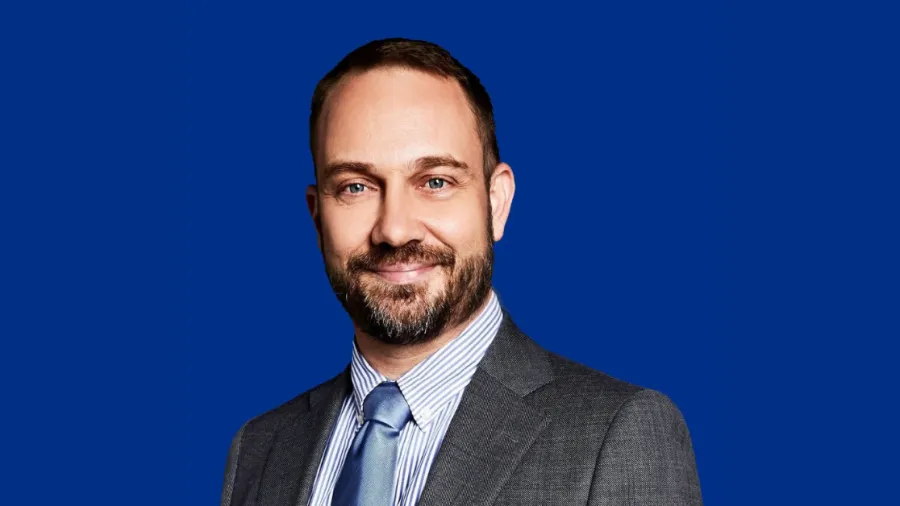
Leverage on health technology to meet higher expectations of customers, says KPMG partner
This comes amidst the shift in expectations in terms of service delivery.
Guillaume Sachet is currently a partner at KPMG in Singapore’s advisory practice. He has more than 25 years of extensive experience across various fields, such as in technology, healthcare, life sciences, and customer experience.
Sachet also has strong leadership experience, having taken on various leadership positions at multinational corporations where he created strategies for digital transformation and innovation in social media, marketing, telecom, media, and tech for clients across Southeast Asia.
He has also spent more than 20 years in Asia, having worked in Singapore, Thailand, Malaysia, Indonesia, Australia, Brunei, Vietnam, the Philippines, Korea, and China.
Sachet is a frequent speaker and writer, contributing more than a dozen articles and white papers on tech and innovation for various organisations and publications.
Providing his insights on Asia’s healthcare industry, he noted that customer expectations of health services are changing and that customers are expecting more in terms of service delivery and are demanding higher levels of personalisation from healthcare providers.
“Offering tailored services can help improve customer satisfaction and brand loyalty whilst adding an element of empathy to the customer experience,” he said.
As one of the judges for the Healthcare Asia Awards, Sachet shared his insights on the new trends in the healthcare industry and the support needed to adapt to these emerging challenges.
How do you think the emergence of digital health has shifted patient expectations in terms of service delivery? How can healthcare players ensure their success amidst this trend?
Digital health has significantly shifted patient expectations in terms of service delivery. The emergence of telemedicine and remote health services has enabled patients to easily access medical attention using their smartphones.
Consumers now expect “on-demand” services that cater to their busy lifestyles. For instance, we are seeing the rise of digital health, which enables patients to seek medical attention easily and quickly through their smartphones, alongside telemedicine, which is also a growing trend. Customers can personalise their profiles through digital health, presenting an immense opportunity for healthcare providers to explore tailor-made services for their customers.
Whilst some patients prefer remote consultations, others still prefer face-to-face medical appointments especially when it comes to serious health conditions. Offering tailored services can help improve customer satisfaction and brand loyalty, whilst adding an element of empathy to the customer experience.
The deteriorating economic outlook is expected to cause difficulties in healthcare financing, on both the government and public sides. How do you think the government and healthcare players can aid the public amidst these difficulties?
In light of the economic outlook, it will be important for healthcare providers to find a sound and sustainable business model that can balance value and cost for consumers. This will become even more important as public spending on healthcare continues to rise. Hence, businesses that can offer professional and affordable healthcare will have a competitive advantage.
Healthcare providers can take advantage of digital services to save on resources and improve efficiency. For example, online tools can be used for screening non-critical and mild cases and to triage patients so that those who need in-person treatment will be attended to promptly. These tools can also be used to monitor non-critical care cases. This will help healthcare institutions manage workload and resources, such as manpower strength, and ensure that they are efficiently spread out.
Collaboration between healthcare players can help pool resources and leverage economies of scale, keeping investments minimal whilst ensuring quality and affordability for patients. For example, a traditional healthcare provider can work together with an established digital health player to offer a diverse range of health services and expertise.
Being one of the judges for this year’s Healthcare Asia Awards, what qualities were you looking for in the entries?
As a judge for this year's Healthcare Asia Awards, I looked for entries that demonstrated several key qualities.
Firstly, successful businesses must have seamlessly and successfully digitalised their operations. This includes streamlining processes through automation and secure data transfers, which are critical in an industry dealing with a lot of confidential data.
Secondly, businesses should be innovative and proactive in coming up with ways to cater to different consumers’ needs, leveraging technology to provide personalised services that add a human touch even through virtual means.
Finally, it is essential for brands to put out a strong image that resonates with their target audience and reflects their values. Consumers are becoming increasingly conscious of their purchases; hence, businesses will need to ensure that their brand values align with those of their customers.
Overall, the winning entries demonstrate excellence in these areas and show a deep understanding of today's healthcare landscape.











 Advertise
Advertise













